It’s no doubt that humans are inherently musical — from our rhythmic heartbeats and melodic voices to the way we express emotion.
So, what happens when we build on our musical instincts and learn a musical instrument?
And more specifically, what if we do this at a young age?

Music as a Language
It takes a ton of time and development for an infant to get to the point of speaking fluently.
From even before your children are born, they spend time listening. How many hours have you spent talking with your infant — sounding out and articulating words before they began to imitate those sounds themselves?
Think back to the moment when your child spoke their first word (such an exciting milestone)!! All of the time you spent talking with your child, reading to them — helped get them to this point.
From that moment, do you remember how long it took for them to begin to form sentences?
And at what point were they able to speak coherently?
See what I’m getting at here?
Learning music follows the same sequence of development, and it is a huge reason I stress the importance of music lessons for young children.
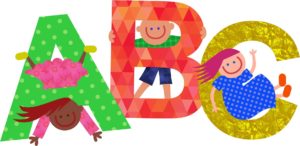
Music accelerates brain development, especially with language acquisition and reading skills.
I’m always amazed at how effortlessly people are able to jump between languages. When someone learns more than one language at a young age, those languages become natural ways of thinking instead of entirely new concepts to learn.
The same thing happens when learning the language of music alongside learning to speak and read.
One of the very first patterns we learn to play on our instruments is “Pepperoni Pizza.”
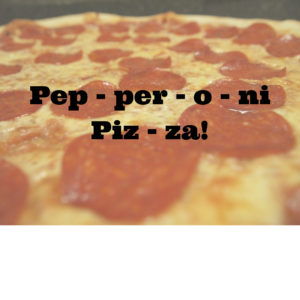 I am always so incredibly excited for my young students when they get to this point for a few different reasons.
I am always so incredibly excited for my young students when they get to this point for a few different reasons.
1) They’ve done enough listening to where they can almost always repeat the rhythm back on their instrument.
2) They’re able to count how many sounds they hear and describe if they are long or short.
3) They develop these skills even before they’re able to speak the word “pepperoni” clearly and distinguish the syllables.
4) They begin to tie what they’ve learned on their instrument back to language.
Isn’t that such an amazing thing? And the benefits of music don’t stop there.
Beyond language acquisition, music helps children develop intellectual, social, emotional, and motor skills.
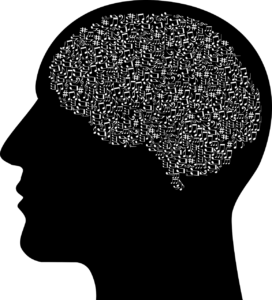
Intellectual Skills
It takes a good amount of “brain power” to make the mental and physical connections needed to create music. Learning music also…
〉 Strengthens memory through melodic and rhythmic patterns.
How many of you learned your alphabet with the ABC song?
〉 Engages the brain and stimulates neural pathways linked to higher forms of intelligence like abstract thinking, empathy, and math.
〉 Refines observation of differences.
Think high and low sounds, fast and slow rhythms, and melodic patterns.
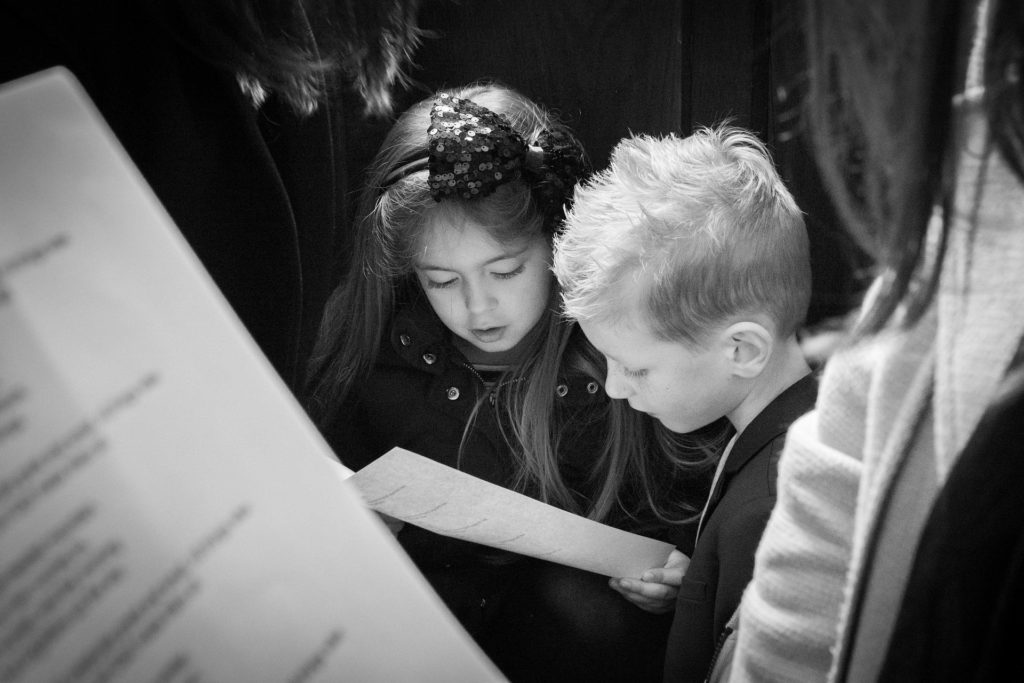
Social and Emotional Skills
Many of us experience some sort of emotional reaction when we listen to music we like. Learning to make music and take on the challenges of playing a musical instrument also…
〉 Builds confidence
Through both performance and practice techniques.
〉 Develops body awareness
Learning left from right as well as how different parts of the body work
〉 Teaches self-discipline
〉 Increases active listening skills
〉 Helps with sharing and taking turns
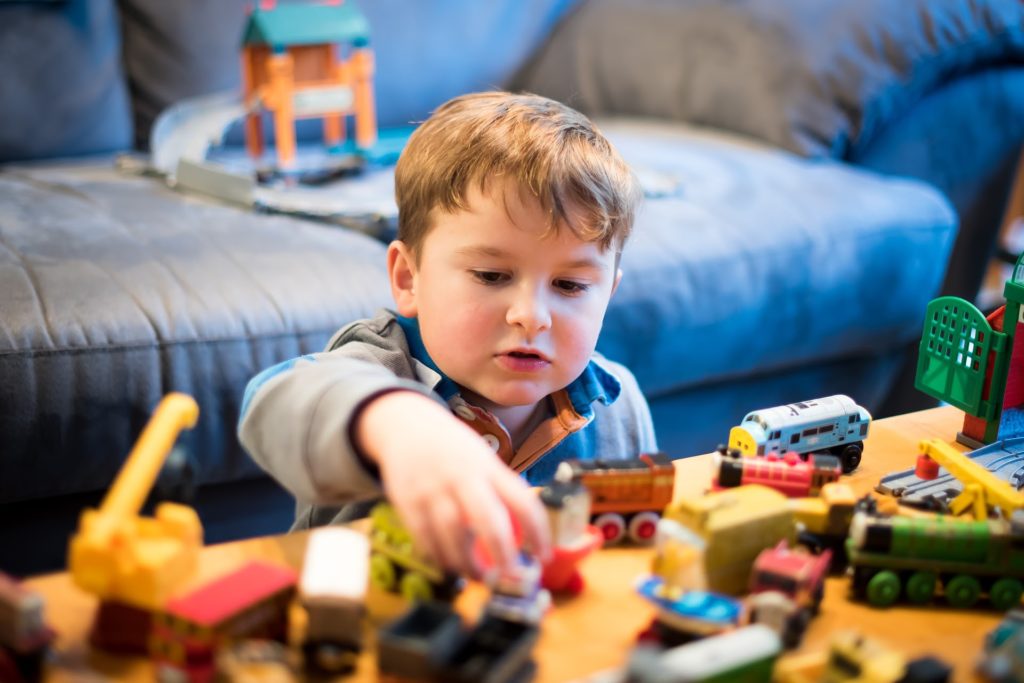
Motor Skills
〉 Increased sensory development
〉 Builds Coordination
Crossing the body and helping the right and left hands move in opposite directions
〉 Fine Motor Skills
Learning to place fingers independently
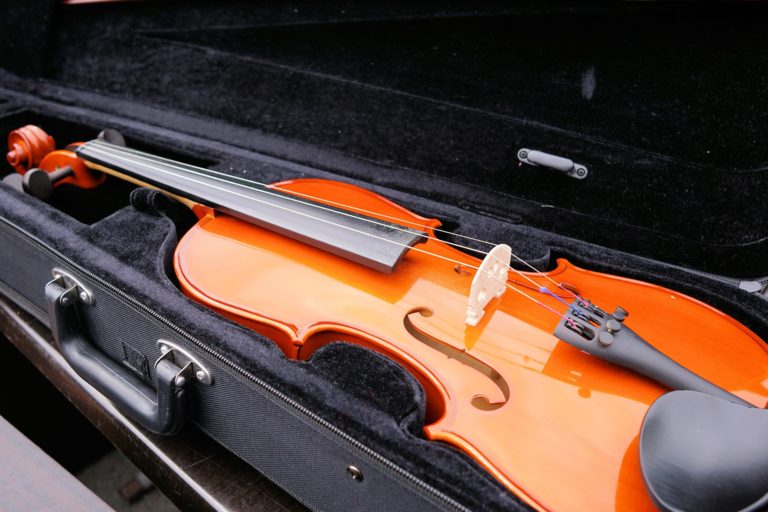
It’s clear that learning music affects child development in so many positive ways.
And these are just a few brief examples of the benefits!
If you like the idea of getting your child started in music, but are thinking that your child might not be ready for lessons, read here.
Otherwise, I encourage you to enroll your child in a FREE mini-lesson and see for yourself how it assists their development!